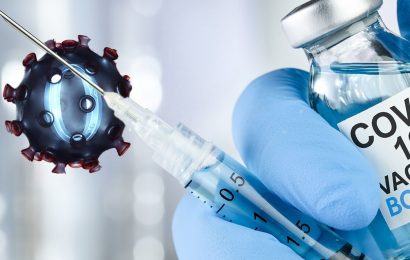Hydroxychloroquine (HCQ) does not prevent infection from the new coronavirus (Sars-Cov-2), the virus that causes the coronavirus disease (Covid-19), found yet another fresh study that dismisses the effectiveness of the anti-malarial drug in protecting healthy people who are at risk of exposure to the virus.
Giving HCQ 600 mg per day as a prophylaxis to physicians, nurses, certified nursing assistants, emergency technicians, and respiratory therapists failed to prevent Covid-19, according to the results of a clinical trial published in JAMA Internal Medicine, which is a journal of the American Medical Association, on September 30.
The double-blind, placebo-controlled randomised clinical trial, which is the gold standard of clinical trials, included 132 participants.
Also Read: Teicoplanin, an antibiotic, could be potential medicine for Covid-19: IIT Delhi research
The trial was terminated early after no significant difference was found in reverse transcription polymerase chain reaction (RT-PCR) confirmed cases of Covid-19 among people given HCQ and those who weren’t. The study authors, however, said the early termination of the trial may have led to it being underpowered to detect a clinically important difference.
Researchers from Harvard TH Chan School of Public Health in the US, Spain’s Universidad De Malaga and the Ministry of Health, however, found HCQ did protect against Sars-CoV-2 infection. They conducted a large meta-analysis of randomised trials of HCQ for the prevention of Covid-19 and found it reduced the risk of Covid-19 by about 20%.
Also Read: Coronavirus study to trial vaccine delivery through inhalers
“Yet the findings from the randomized trials were widely interpreted as evidence of lack of effectiveness of HCQ, simply because they were not “statistically significant” when taking them individually. Completion of the ongoing prophylaxis trials is needed to generate more precise estimates of the effectiveness of HCQ to prevent COVID-19,” said the study, which was published on September 29 in medRxiv, a pre-print website that publishes studies before peer-review to expedite access to new research.
The cheap and widely available drug that has been courting controversy since two preliminary trials in Covid-19 patients in China in March showed it boosted recovery and lowered the severity of Covid-19.
An early study from France also showed benefit of HCQ in 26 patients treated in French hospitals, but flaws in study design made it difficult to interpret. US President Donald Trump’s endorsement put the spotlight on the pros and cons of its use.
Apart from malaria, HCQ is prescribed for rheumatoid arthritis and lupus.
On July 4, the World Health Organization (WHO) discontinued the HCQ arm of the Solidarity Trial after interim results showed it produced little or no reduction in the mortality of hospitalised Covid-19 patients when compared to standard of care.
“This decision applies only to the conduct of the Solidarity trial in hospitalized patients and does not affect the possible evaluation in other studies of hydroxychloroquine… in non-hospitalized patients or as pre- or post-exposure prophylaxis for Covid-19,” said the WHO.
HCQ is one of the repurposed and off-label therapies approved to protect people from Covid-19, according to the Indian Council of Medical Research’s Clinical Management Protocol: Covid-19, released on July 3. It recommends 400mg twice a day on Day 1 followed by 400mg daily for the next four days.
“As such, the evidence base behind its use remains limited as with other drugs and should only be used after shared decision making with the patients while awaiting the results of ongoing studies,” notes the clinical management protocol.
“It’s a safe drug and should be used as early in the disease course as possible to achieve any meaningful effects and should be avoided in patients with severe disease. The jury is still out regarding utility,” said Dr Randeep Guleria, director, All India Institute of Medical Sciences, New Delhi. ICMR does not recommend the use of HCQ for the treatment of severe Covid-19.
Social distancing, masks and hygiene remain the best possible protection against Covid-19. Trump announced on Twitter on Friday that he and wife Melania had tested positive for Covid-19 following his close aide Hope Hicks getting Covid-19. Hicks had travelled with President Trump on Air Force One on Tuesday for the first presidential debate with Democrat Joe Biden.
“Keeping our hands clean, maintaining distance, avoiding crowded places and wearing a mask are our best protection against Covid-19.The use of masks is part of a comprehensive approach along with physical distancing, hand hygiene and respiratory etiquette, to prevent spread of Covid-19. As we enter the tenth month of the Covid-19,the advantages of the use of masks by healthy people in the general public include reduced potential exposure risk from infected persons before they develop symptoms; and making people feel they can play a role in contributing to stopping spread of the virus,” said Dr Poonam Khetrapal Singh, WHO Regional Director for South-East Asia.
Source: Read Full Article


